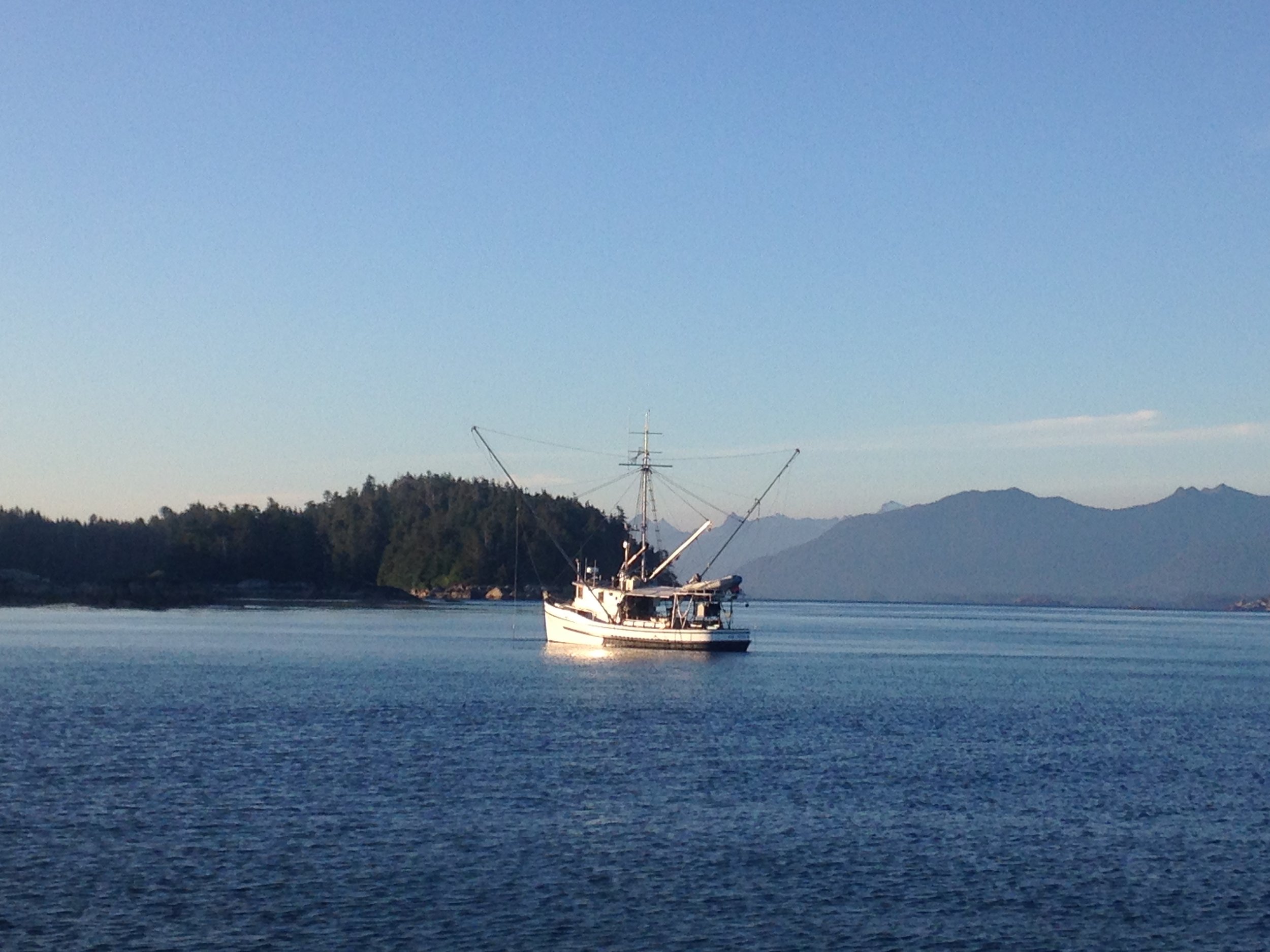Aug. 22, 2023 | By Anna Squires | NREL |Contact media relations
See Link to read article online
On a brisk morning this fall, a 46-foot commercial fishing boat will cruise into the cold waters of Sitka, Alaska, and cut the diesel engine. In that moment of near silence, an electric motor will whir to life. This moment will mark a sea change for Sitka's small-boat commercial fishing industry: a transition to energy-efficient commercial fishing, powered by low- and zero-emissions propulsion systems.
The boat in question, a small commercial salmon troller named I Gotta, will make history as one of the first low-emissions fishing vessels ever deployed in Alaska. Using a unique parallel hybrid battery-diesel system, the boat can travel at full speed using its diesel engine, then switch to a battery-electric motor when fishing. In this way, I Gotta’s captain, Eric Jordan, will be able to cut the boat’s fuel use by 80%.
Making Headway To Lower-Emissions Operations
The shift to lower-emissions fishing has been slow to start—but not for lack of interest, said Linda Behnken, ALFA’s executive director.
“We tend to be leaders in the climate and environmental space up here,” said Benkhen, who leads ALFA’s Sitka-based cooperative of more than 160 small-boat commercial fishers, each committed to sustaining salmon fishing for future generations. “Our fishermen are really eager to reduce their greenhouse gas emissions and their fuel costs.”
Linda Behnken is the executive director of the Alaska Longline Fishermen's Association (ALFA). Photo by Bethany Goodrich
But, Behnken said, small fishers cannot risk being early adopters of a new technology if it might jeopardize their fishing season, even when high fuel costs eat up as much as 30% of their revenue.
To take some of the risk out of the equation, Behnken applied to join ETIPP, a network of regional organizations and DOE national laboratories that helps remote and island communities shift their energy systems toward renewable options.
Low- and Zero-Emissions Operations To Ripple Across Alaska
Later this year, ALFA will contract with local boat builders to retrofit I Gotta with its hybrid system. But the work will not stop there. Renewed funding from DOE’s Office of Energy Efficiency and Renewable Energy will allow ALFA to begin testing not one but three novel propulsion systems that consider different ways fishing boats travel.
Since 1978, ALFA has worked to safeguard ocean health and improve the economic viability of small boat fishing. Photo courtesy of ASMI, Josh Roper Photography
The first, a series hybrid system, will allow fishing boats the flexibility to travel either short or long distances while minimizing diesel fuel use. The series system uses an electric motor to power the propeller at all boat speeds and a battery to power the motor, allowing boats to travel their typical 10- to 20-mile routes under battery-electric power. These batteries can be charged at a dock using Sitka’s 100% renewable hydroelectric dams. In the rare case that captains need to travel hundreds of miles for an extended trip, they can recharge the boat’s batteries with an onboard diesel generator.
ALFA will also test a fully battery-electric system for mariculture vessels, which cultivate fish, shellfish, and aquatic plants. These vessels stay within 10 miles of shore and follow regular transit schedules, making them candidates for full electrification. Most importantly, by transitioning these vessels to zero-emissions operations, ALFA will eliminate the risk of fuel spills close to shore or near vulnerable aquatic species.
Finally, ALFA will assess an additional parallel hybrid system, like the one chosen for I Gotta, to demonstrate its effectiveness in different operating conditions.
Learn more about NREL's sustainable transportation and mobility research and its specific focus on commercial vehicle decarbonization. And sign up for NREL's quarterly transportation and mobility research newsletter, Sustainable Mobility Matters, to stay current on the latest news.

